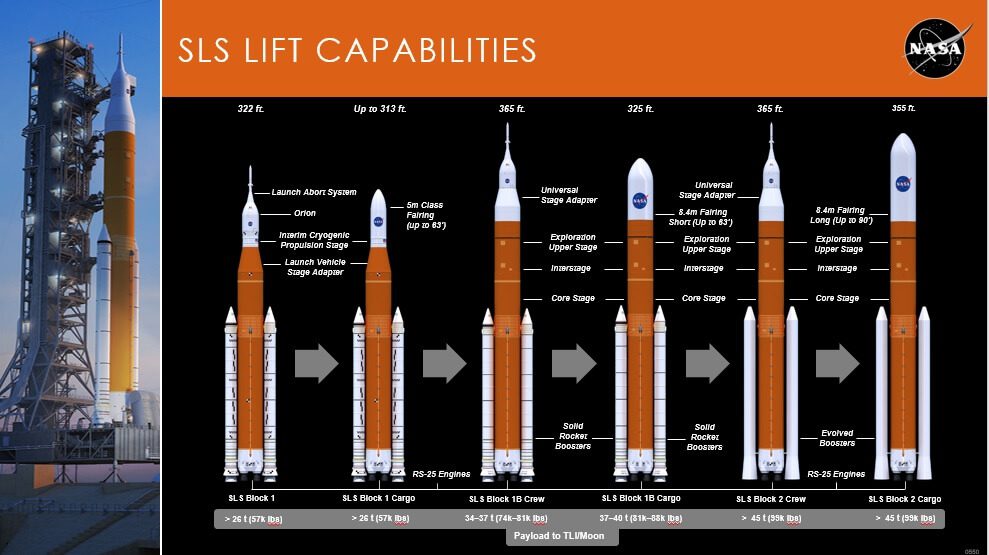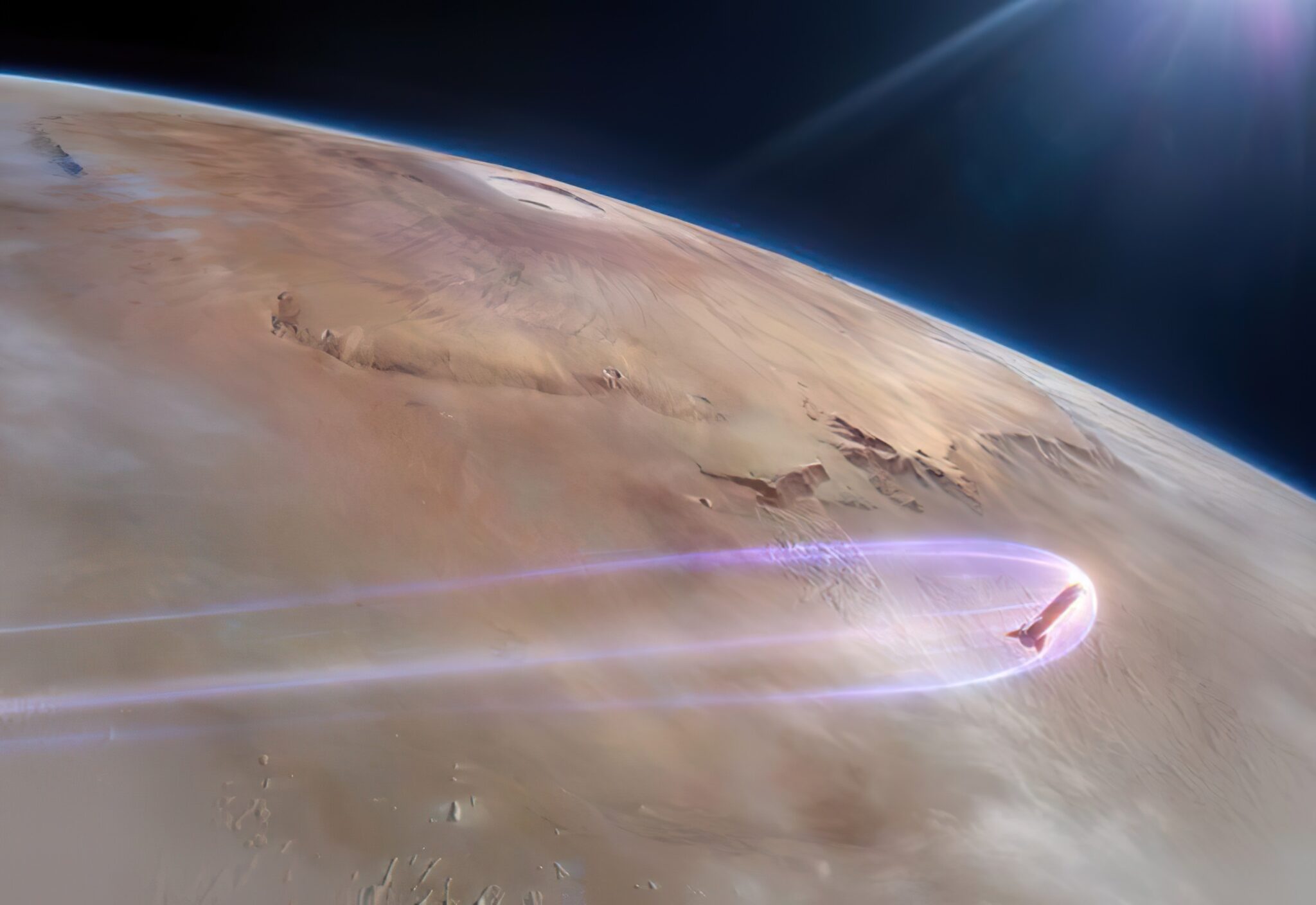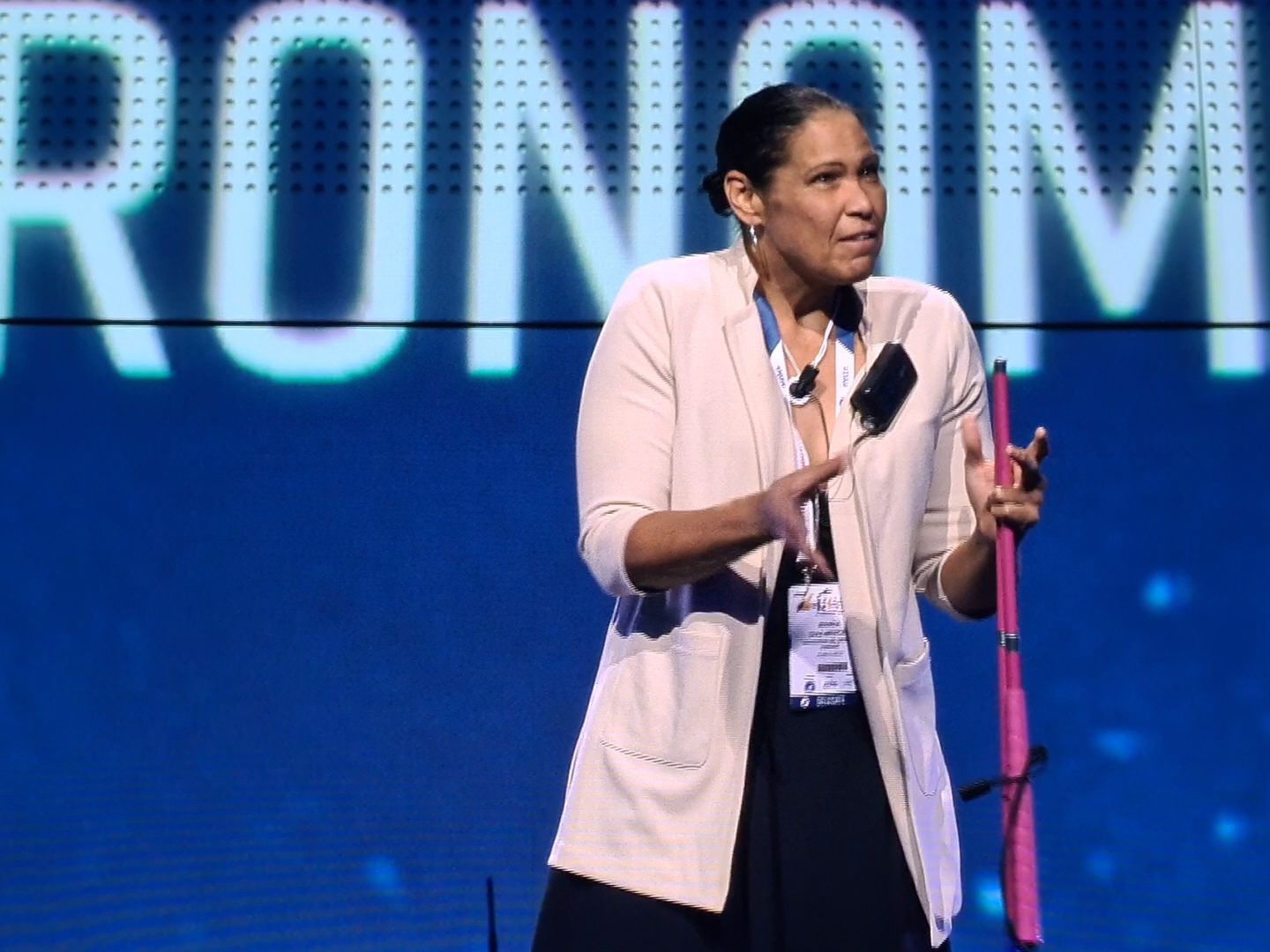David Todd considers what the result of the US Election means for the future of space.
There are rumours that a radical revolution in US Space policy will unfold after Republican candidate Donald Trump returns to the White House as President of the US in January.
This might not be the worst thing. Running the US space programme, along with restricting immigration, was one of Kamala Harris’ two main duties as Vice President in the Biden administration. She gained some plaudits for helping to draft rules for an acceptable standard of behaviour in space, but NASA’s Artemis programme to land humans back on the Moon has faltered under her tenure.
Officially, Vice President elect J D Vance will lead the space programme under the Trump administration. However, space mogul and billionaire Elon Musk is expected to be in the driving seat, as his relationship with the incoming President deepens.

Elon Musk and Donald Trump sit down to a McDonald’s meal on Donald Trump’s jet. Courtesy: Elon Musk/X
The Musk effect
The SpaceX founder put his support behind Trump during the election and has already seen his efforts rewarded. He has been appointed to head up an advisory body dubbed the ‘Department of Government Efficiency’ (DOGE) – a tongue-in-cheek nod to Dogecoin, Musk’s favourite cryptocurrency. Its role will be to scrutinise US Government efficiency. Civil service jobs, mainly managerial and some at NASA, may be on the line.
Musk may benefit from his loyalty in other ways too. SpaceX is fighting US Federal and State government agencies on several issues. Firstly, it wants permission to launch more rockets from Vandenberg for US military services, something the Californian Coastal Commission (CCC) has prevented on the basis of Musk’s alleged interference with the US electoral process. Secondly, SpaceX has disagreements with the Federal Aviation Administration (FAA) over launch permissions at Cape Canaveral and in Texas. Finally, the space giant is in deep discussions with the Federal Communications Commission (FCC) in a bid for the Starlink communications satellite constellation to operate more frequencies. Given the election result, these tussles are expected to be swiftly resolved (most likely in Musk’s favour).
However, the US Congress will want at least some measure of competition to SpaceX for other launches into space. To enable this, United Launch Alliance (ULA) and Blue Origin, led by Jeff Bezos, will share business from US government launches for the next five years.
The programmes that might be scrapped
A shake-up of space policy in the US will not affect all programmes equally. Some news outlets have already suggested that the Space Launch System (SLS) could be cancelled. It is more likely to be retired once the RS-25 engine supply runs out. That means that all later SLS versions (e.g. Block 1B and Block 2) using the planned Exploration Upper Stage (EUS) would be cancelled.
The Artemis programme could also find itself in trouble. Some fear that it could be scrapped entirely. This is unlikely to happen before human lunar landings are achieved. In fact, Trump will probably pour more money into Artemis, at least initially, to make sure that the US beats China in the lunar human return.
This will put a certain amount of pressure on SpaceX, and Musk, to deliver the Human Landing System (HLS) on time (the cryogenic propellant landing technology for HLS is due for flight testing next year).
To the chagrin of NASA’s partners ESA and JAXA, it is Gateway, the US agency’s lunar orbiting station, that is at greater risk of being postponed or even cancelled in favour of focusing on ‘The Great Space Race’ back to the Moon.
Trump has been a proud denier of global warming and climate change in the past. He went so far as to ban some of NASA’s climate change research missions during his first Presidential term. However, as with many on the political right, he has softened his stance on the subject. He has since accepted global warming as a fact but has remained resistant to the level of environmental restrictions needed to reduce the global temperature rise. So, this time around he may refrain from blocking NASA’s environmental missions.
Foreign Policy
A new Trump Administration might also have indirect effects on space. President-elect Trump has declared that he will impose tariffs on imports from a number of countries. Although this includes allies of the US, Trump particularly wants to target China with higher tariff rates. Such measures may provoke China and others to impose counter tariffs which might reduce global trade. The fallout of this could, in turn, limit US satellite and launch orders.
Looking further ahead, if China’s international commerce is seriously affected, it may be discouraged from adhering to peaceful geopolitical behaviour. It continues to voice its territorial claims on Taiwan and on disputed islands in the South China Sea – giving rise to fears that China might be tempted to embark on military campaigns. The mere threat of this could prompt an increase in US military defence spending, which is likely to benefit space.
That said, Trump holds an apparently isolationist, and even an appeasement, stance towards Russia over its war against Ukraine. He may try to force a peace settlement by insisting Ukraine cede some of its territory, especially the Crimea, to Russia. Musk is accused of wanting the same thing, perhaps becoming a little too friendly with Russia’s dictatorial leader Vladimir Putin. There are calls for the US security services to investigate alleged calls between the pair. Trump may also reverse Biden’s recent decision to allow longer-range missiles to be used against the Russian mainland. One factor that may prompt him to change his mind is that Russia is allegedly providing satellite imagery to help Houthi anti-ship missiles, which have been supplied by Iran. Trump may also increase support for Israel’s unpopular invasion of Gaza and Lebanon.
Comment by Farah Ghouri:
In the most recent election Elon Musk’s America PAC was allowed to award US$1m to one voter in a swing state each day until election day. He also reversed a ban on Trump’s account on X, known as Twitter before Musk bought the platform. The account had been shut down after the attack on the US Capitol in January 2021. He was, and is, an unabashed Trump supporter. As David Todd points out, the billionaire has been rewarded for his loyalty in the form of significant positions of power.
SpaceX has in the past been blocked from certain endeavours because of accusations against its founder of alleged interference with the US election process. The irony is that SpaceX is more likely than ever to benefit from its founder’s controversial role in US politics.

The lift capabilities of SLS variants as planned – but they may not all survive. Courtesy: NASA







